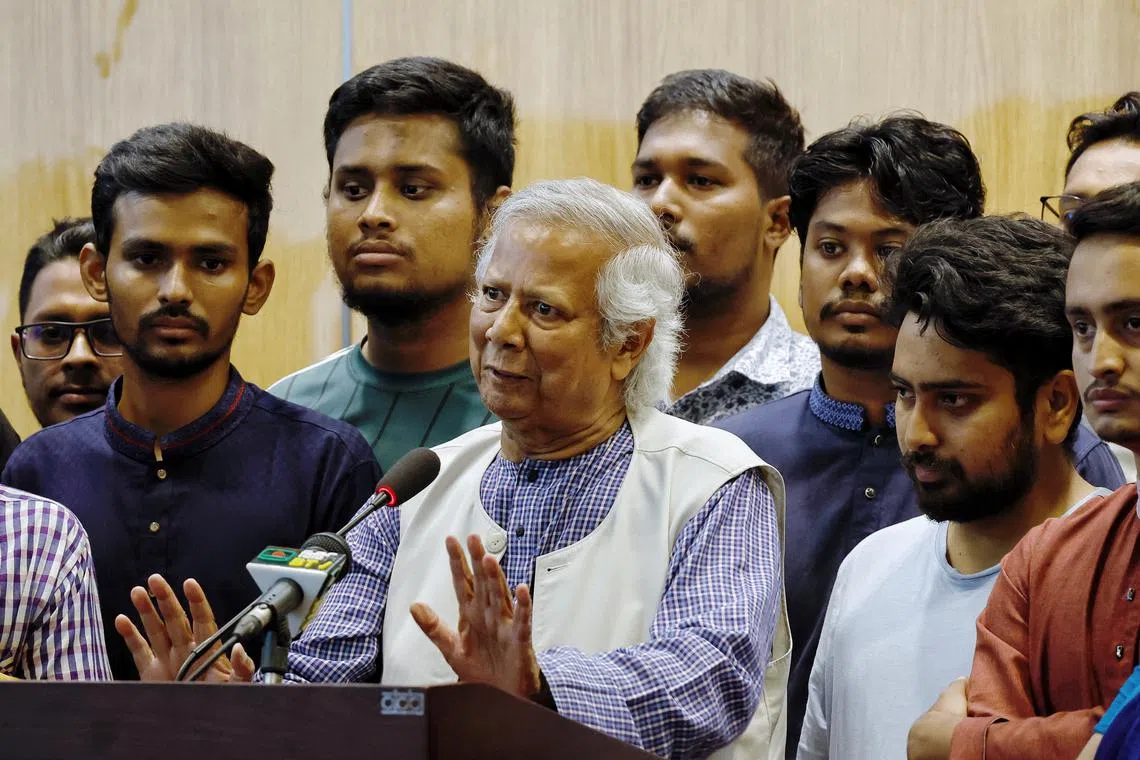What is Bangladesh's caretaker leader Yunus' economic thinking?
Sign up now: Get insights on Asia's fast-moving developments

Nobel laureate Muhammad Yunus advocates "social businesses" that solve problems rather than simply create wealth.
PHOTO: REUTERS
NEW DELHI - Nobel Peace Prize winning economist Muhammad Yunus takes over as the head of Bangladesh’s caretaker government on Aug 8 at a time when the country is facing tough economic challenges.
Here is a look at his economic beliefs as he takes the helm of the South Asian country
Social businesses
Dr Yunus advocates "social businesses" that solve problems rather than simply create wealth, with any profit generated being ploughed back to create more value.
Grameen Bank, the microfinance lender he founded, was rooted in this idea and lauded for helping to boost growth and alleviate poverty in Bangladesh.
Dr Yunus was awarded the 2006 Nobel Peace Prize for his pioneering work in microfinance which was replicated in other developing countries and led to him being known as "banker to the poor".
Poverty
Dr Yunus' belief that poverty - which plagued more than 18 per cent of Bangladesh's population in 2022 - is a "threat" and causes problems ranging from terrorism to trafficking, informs most of his work.
"You can't leave people poor and live happily...they are in a desperate situation. When you are desperate, you disturb peace," he told Nobelprize.org in 2006.
It was to solve this problem that he sought to inculcate "sound financial principles" in the poor through his microcredit system.
Globalisation
Dr Yunus has called for "multi-national social businesses" that either give the poor ownership or keep profits within poor countries.
When he dabbled in politics in 2007, he suggested upgrading the Chittagong port to a continental seaport - a plan critics said could endanger national security, jobs and the environment.
He also spoke of a "global civilisation" in an interview with The Indian Express newspaper last week, in which he criticised India for saying the upheaval in Bangladesh was an "internal matter" and warned the chaos could spill over to its neighbours.
"Diplomacy has a much richer vocabulary than saying it is their internal affair," he said.
Women
Dr Yunus emphasises the role of women in building the future and has been part of multiple international commissions catering to them.
Women currently outnumber men in Bangladesh and constitute 97 per cent of Grameen Bank's members.
"Women want to build up something for the future with their money. Men want to spend it enjoying themselves," he told Harvard Business Review in 2012. REUTERS


